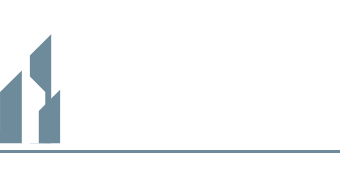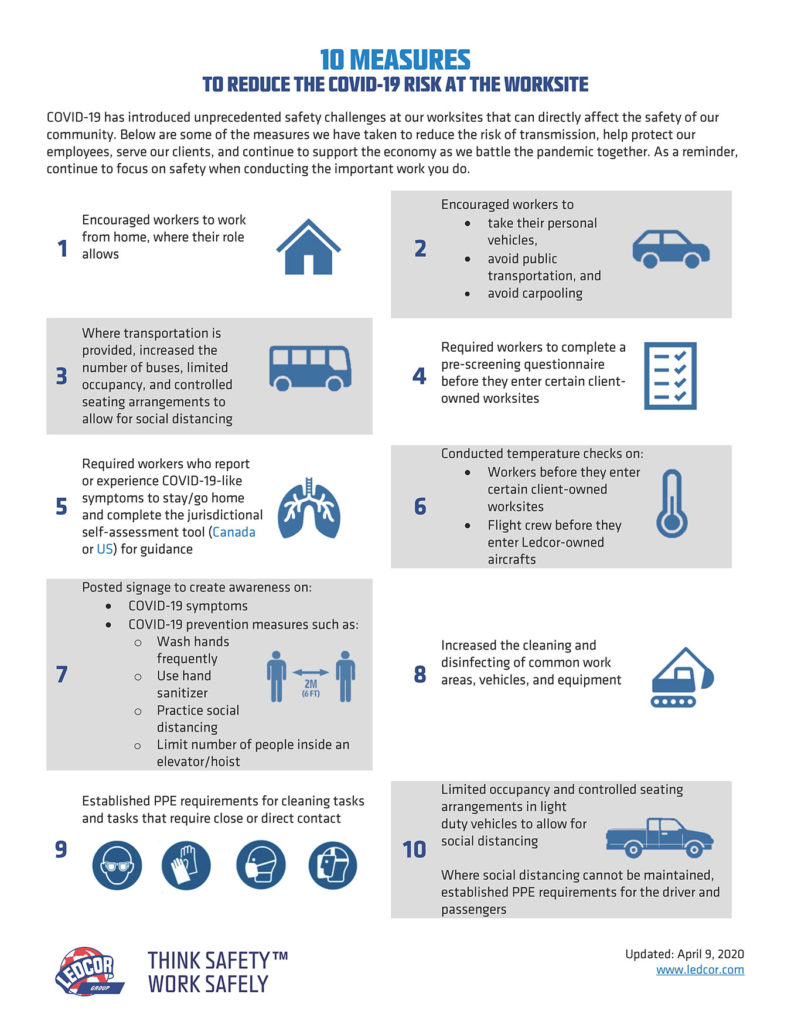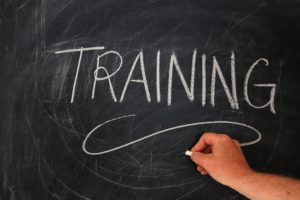THIS PAGE IS BEING UPDATED REGULARLY WITH NEW, RELEVANT INFORMATION – BOOKMARK IT
A new coronavirus is the cause of an outbreak of respiratory infections, now known as the COVID-19 global pandemic. All British Columbians should be aware of the virus and how to prevent its spread. Here is information for ICBA members working in the construction sector (bookmark this page as we will be updating frequently).
Public Health and News Links
- BC Centre for Disease Control
- Health Canada
- WorkSafeBC
- Get B.C. news & business headlines every morning (free) by subscribing to The Fin
Information for Construction Employers
- Need workers? Try ICBA’s Employment Network
- The Provincial Health Officer guidance for construction sites operating during COVID-19
- (All construction sites must adhere to these rules – WorkSafeBC is checking)
- WorkSafeBC has a new guide for safe residential construction
- The Provincial Health Officer guidance for work camps
- WorkSafeBC Q1 and Q2 premium payments are not due until Oct. 20, 2020
- In some circumstances, if your business was collecting the Canada Emergency Wage Subsidy, premiums are waived
- WorkSafeBC says Occupational First Aid certificates expiring March 1-August 31, 2020, will now be acceptable for 180 days past their expiry date
- The CCA has published a updated set of COVID-19 standardized protocols
- Vancouver Fire Department set out rules for Vancouver construction sites
- Technical Safety BC has updated their activities related to COVID-19
- Provincial health guidance for natural resources employers and workers
Legal Advice for Construction Employers
- Legal guidance on the provincial government’s Liability Restriction Order, regarding employees who contract COVID-19 at work, from BC-based law firm Gall Legge Grant Zwack
- Legal guidance on force majeure and the doctrine of frustration in contracts from BC-based law firm Gall Legge Grant Zwack
- What employers need to know about temporary layoffs and how to provide a proper Record of Employment for employees impacted by the pandemic
- Legal guidance to B.C. Employers re COVID-19 Layoffs from BC-based law firm Gall Legge Grant Zwack
- Legal guidance regarding contractual obligations, from BC-based law firm Clark Wilson
- Clark Wilson has a wealth of pandemic-related legal guidance for businesses
- Legal guidance on the CCDC 2 stipulated price contracts from BC-based law firm Jenkins Marzban Logan
- Government of B.C.’s page on how to handle absences and other disruptions
- Federal guidance on EI procedures
Government Aid For Employers
Both the federal and provincial governments are working on financial aid for employers – we are working hard to share construction’s perspective. ICBA is a founding member of the COVID-19 Business Cabinet.
- Federal measures:
- NEW 7/20 – The Canada Emergency Wage Subsidy (CEWS) is changing, but details are still being worked out. Here’s what we know about the updated program:
- Changes would take effect for September; the program is extended to December 19, 2020
- Make the subsidy accessible to a broader range of employers by including employers with a revenue decline of less than 30 per cent and providing a gradually decreasing base subsidy to all qualifying employers
- Introduce a top-up subsidy of up to an additional 25 per cent for employers that have been most adversely affected by the pandemic
- CEWS APPLICATION PORTAL (UNDER CURRENT RULES) IS NOW OPEN. Current Rules:
-
- CRA has set up this calculator to help companies assemble what they need
- It is open to corporations, businesses, partnerships and non-profits – no matter how large or small
- Subsidy rules require a 15% revenue drop for March 2020 (from either March 2019 or the average of Jan/Feb 2020); subsequent months require a 30% revenue drop.
- The benefit will cover up to 75% of workers’ salaries on the first $58,700 earned annually
- The maximum benefit will be $847 per week, per worker
- The subsidy will be backdated to March 15
- Employers must attest that they are doing everything they can to pay other 25%
-
- Banks instructed to offer lines of credit of up to $40,000 to business, guaranteed by the federal government. Interest-free for first year, with up to $10,000 forgivable. Apply at your bank
- Economic Development Canada will guarantee up to 80% of operating cash flow loans negotiated with banks
- The Business Development Bank of Canada has upped its financing for entrepreneurs and employers during this crisis
- Individuals’ AND businesses’ income tax filing deadline was June 1. Payments not due until September.
- NEW 7/20 – The Canada Emergency Wage Subsidy (CEWS) is changing, but details are still being worked out. Here’s what we know about the updated program:
- Provincial (B.C.) measures:
- Complete list of small business supports in B.C.
- Small Business BC (a government agency) has a helpful coronavirus portal
- Deferred payment programs for ICBC and BC Hydro. Hydro also reducing rate by 1%
- Employer Health Tax, PST, municipal and regional district tax, motor fuel tax, and carbon tax (all for businesses) filings and payments deferred until Sept. 30
- 75% (previously announced as 50%) school tax cut for business and light- and major-industry property classes, and extending payment deadline to Oct. 1
ICBA’s Commitment to Our Members
- We are committed to helping you facilitate solutions in your company – we are already at work on the federal and provincial governments to do right by construction companies and the families who rely on them
- Our ICBA services – including ICBA Benefits and the Construction Industry’s Benefit Plan – continue and are as seamless as possible during this time
ICBA Benefits and the Construction Industry’s Benefit Plan/Hour Bank
- ICBA Benefits, our group health benefits company – main site | COVID-19 specific information
- CIBP, our hour bank benefits company – main site | COVID-19 specific information
Cancellations
- ICBA Training has cancelled all in-person training courses, however our online catalogue is still available
- Technical Safety BC and BC Construction Safety Alliance have cancelled all exams and closed down in-person training
If You Are Concerned You Have The Virus:
- Use this self-assessment tool: https://covid19.thrive.health/
- Call the COVID-19 hotline: 1-888-COVID19 (1-888-268-4319) for non-medical advice
- Call 811 for medical advice
Homebound? Try one of ICBA’s Online Courses
- Kudos to our ICBA member companies who are using the ICBA online training options to keep their workers trained during shutdowns. Check out ICBA.ca/online or talk to us at training@icba.ca to see how we can help you with bulk course registrations for your workers (these are now open to all British Columbians). We’re in this together!
- ICBA has launched webinar training at icba.ca/webinars





